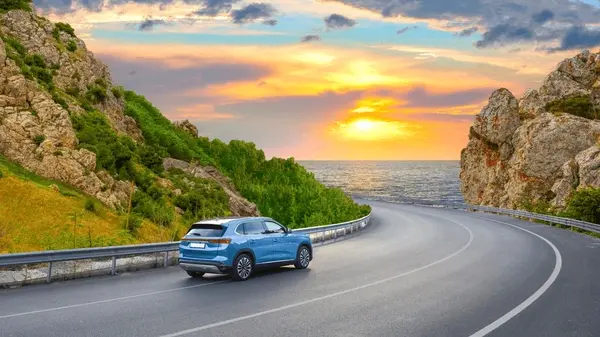Driving a car for a long distance not only requires attention and preparation from the driver, but the technical condition of the car is also of great importance during trips. By thoroughly inspecting your car before setting off, you will ensure a safe and comfortable trip not only for yourself, but also for your passengers. Below are the main points that should be checked before a long trip.
1. Basic technical checks
Tire condition
Check the pressure and condition of all tires, including the spare tire. Worn or flat tires can be dangerous on a long trip. The tire pressure should be in accordance with the standards specified by the car manufacturer.
Engine oil
The level and quality of the oil are very important for engine operation. Worn or insufficient oil can damage the engine. If it has been a long time since the last oil change, we recommend that you change it before the trip.
Cooling system
Check that there is enough antifreeze in the radiator. This is very important to prevent the engine from overheating in hot weather or on long journeys.
Brake system
Check the brake fluid level and brake efficiency. A malfunction in the brake system should not cause serious accidents later.
Battery
Check the battery. To prevent the engine from suddenly stalling on a long journey, it is necessary to pay attention to the charge level and the cleanliness of the contacts.
Lights and signal system
Check the operation of all headlights, stop lights and turn signals. They can help you drive without being distracted at night or in rainy weather.
Hoses and belts
Make sure that there are no cracks or loose spots on the belts and hoses inside the engine.
Ventilation and air conditioning
During a long journey, the air circulation and cooling system in the car interior are of great importance in helping the driver concentrate.
2. Additional preparation checklist
Important documents
You must have your driver's license, vehicle registration and insurance documents with you.
Spare equipment
Keep a spare tire, jack, keys and other necessary equipment in the car.
Emergency kit
It is also a good idea to have a fire extinguisher, first aid kit and flashlight with you in case of force majeure.
Fuel level
Fill the fuel tank before setting off. Especially if you are going to remote and remote areas, you may not come across gas stations often.
Conclusion
Properly preparing your car for long-distance trips is the key to a safe and comfortable journey. ASKO offers you a reliable partner on the road - we have high-quality, durable and modern tires and batteries for any road conditions. To learn more about us, fill out the form and our staff will contact you.
1. Basic technical checks
Tire condition
Check the pressure and condition of all tires, including the spare tire. Worn or flat tires can be dangerous on a long trip. The tire pressure should be in accordance with the standards specified by the car manufacturer.
Engine oil
The level and quality of the oil are very important for engine operation. Worn or insufficient oil can damage the engine. If it has been a long time since the last oil change, we recommend that you change it before the trip.
Cooling system
Check that there is enough antifreeze in the radiator. This is very important to prevent the engine from overheating in hot weather or on long journeys.
Brake system
Check the brake fluid level and brake efficiency. A malfunction in the brake system should not cause serious accidents later.
Battery
Check the battery. To prevent the engine from suddenly stalling on a long journey, it is necessary to pay attention to the charge level and the cleanliness of the contacts.
Lights and signal system
Check the operation of all headlights, stop lights and turn signals. They can help you drive without being distracted at night or in rainy weather.
Hoses and belts
Make sure that there are no cracks or loose spots on the belts and hoses inside the engine.
Ventilation and air conditioning
During a long journey, the air circulation and cooling system in the car interior are of great importance in helping the driver concentrate.
2. Additional preparation checklist
Important documents
You must have your driver's license, vehicle registration and insurance documents with you.
Spare equipment
Keep a spare tire, jack, keys and other necessary equipment in the car.
Emergency kit
It is also a good idea to have a fire extinguisher, first aid kit and flashlight with you in case of force majeure.
Fuel level
Fill the fuel tank before setting off. Especially if you are going to remote and remote areas, you may not come across gas stations often.
Conclusion
Properly preparing your car for long-distance trips is the key to a safe and comfortable journey. ASKO offers you a reliable partner on the road - we have high-quality, durable and modern tires and batteries for any road conditions. To learn more about us, fill out the form and our staff will contact you.
